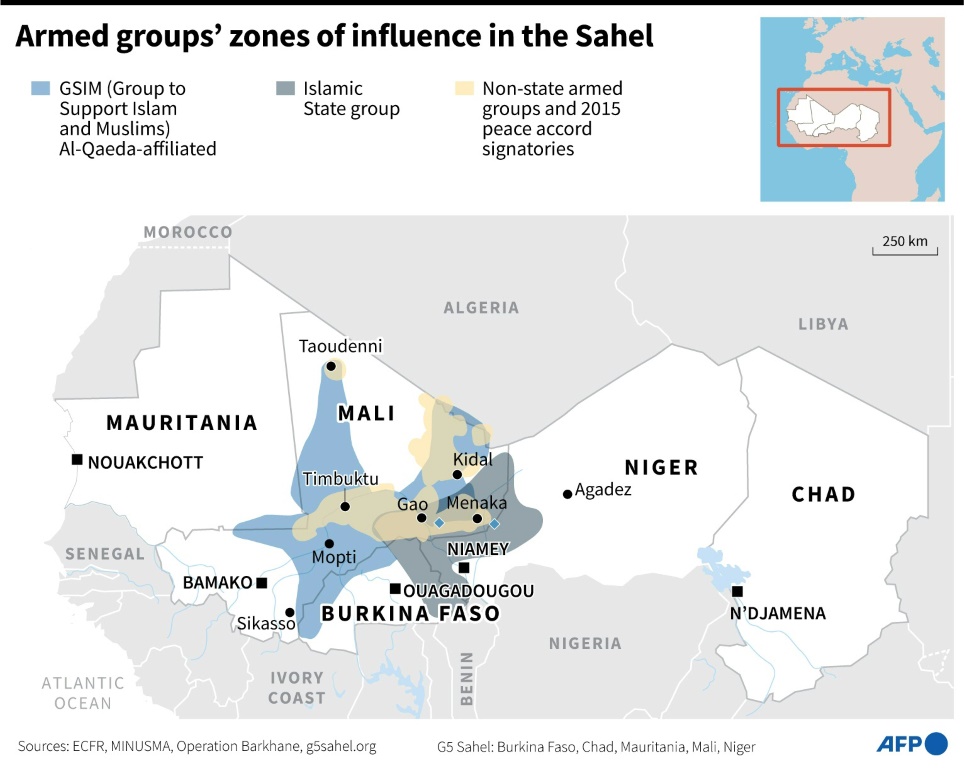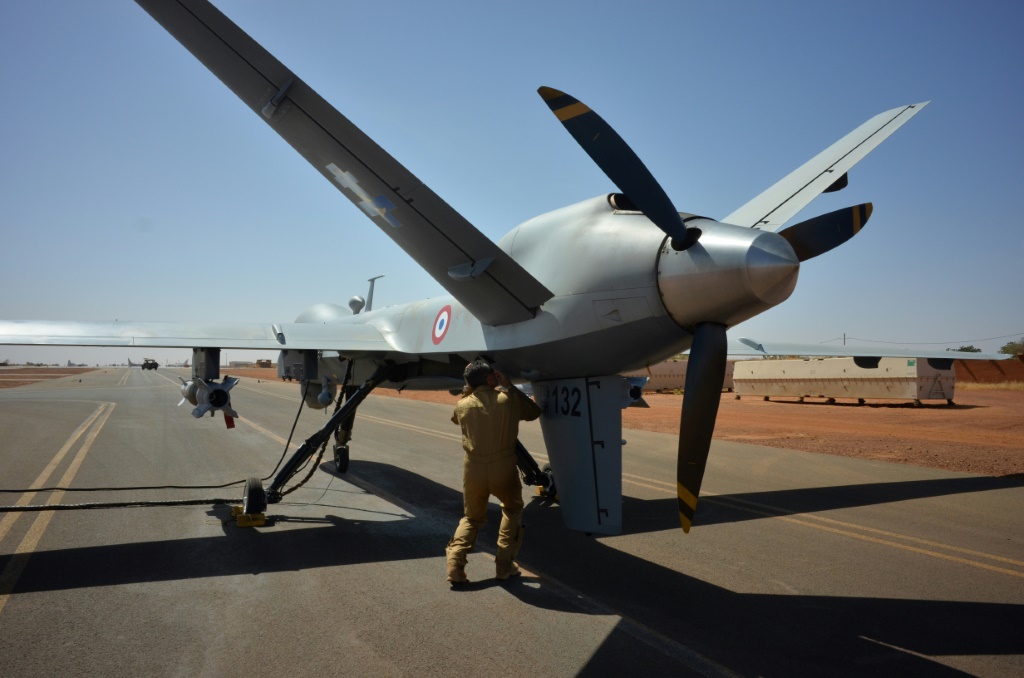France and its European allies are casting a worried eye at Mali’s military junta over its plans to hire Russian mercenaries to help fight jihadist insurgents.
European nations in a French-led campaign to shore up Mali have warned of far-reaching consequences at a time when the junta is already under scrutiny over its progress to restore civilian rule.
Alarm bells sounded last week after sources in the French presidency and security services said Mali’s rulers were close to hiring a thousand paramilitaries from the so-called Wagner group.
The shadowy organisation has long been suspected to be the Kremlin’s paramilitary arm, and its members have already been accused of abuses in the Central African Republic.
In a visit on Monday, French Defence Minister Florence Parly warned it would be impossible for the French military to “cohabit” alongside “mercenaries” — forces with no legitimacy or accountability.
She said international partners seeking to fight jihadism in the Sahel have “never been so numerous.”
But “a choice (to hire Russian paramilitaries) would be that of isolation,” she said. Parly left without gaining any commitment from Malian counterpart Sadio Camara.
On Friday, the defence ministers from 13 European countries that are being pressed to join the French-led campaign also cautioned the junta against hiring the mercenaries.
“We want to send a clear message: we are not willing to accept the Wagner group entering the Malian theatre,” Swedish Defence Minister Peter Hultqvist said after chairing a meeting of the European Intervention Initiative, a military scheme aimed at undertaking missions outside of existing structures like NATO.
– French backing –
More than 5,000 French troops are in the Sahel under France’s Barkhane mission.
Their drones, satellites and warplanes have been crucial for Mali’s poorly-equipped and under-trained armed forces, struggling with a nine-year-old jihadist insurgency that has claimed thousands of lives and forced hundreds of thousands to flee their homes.
But Mali’s poor governance and crumbling democracy have placed President Emmanuel Macron in a tight spot.


He is under mounting pressure to justify French support, which has cost the lives of 50 troops and hundreds of millions of dollars over the years.
Army officers led by a special forces colonel, Assimi Goita, toppled Mali’s elected president, Ibraham Boubacar Keita, in August 2020.
The coup was greeted by cheering crowds who had long been angered by the corruption and failures to tackle the insurgency under Keita.
But hopes abroad for political renewal in this deeply troubled country have dimmed.
In October last year, without consulting Mali’s French ally, the junta freed dozens of prisoners — many of them captured in anti-jihadist operations — in exchange for the release of four prominent hostages, including an elderly Frenchwoman.
Goita then carried out a second coup in May, forcing out the country’s interim civilian president, and naming himself in his stead — a move that prompted France to temporarily suspend military cooperation for a while.
Meanwhile, Goita’s commitment to honour a pledge to hold elections by next February looks increasingly unfeasible, given a string of logistical and constitutional problems that have to be resolved.
– Risk for France –
The situation is precarious for France, which is wondering how to continue defending its chronically unstable former colony and linchpin in the Sahel.
Under a plan announced by Macron this year, France plans to cut its numbers of troops in the region to around 2,500-3,000 by 2023.
The cutback would go hand-in-hand with the deployment of more special forces sent by France’s European allies — a move in which Macron has invested a huge amount of political capital.


But the situation on the ground remains extremely dangerous, despite the killing of several jihadist leaders in recent months, say French military sources.
In addition, Macron’s strategy needs the support of Mali’s government and army to take up the slack.
Swathes of land have been abandoned by the state over the years as the jihadists have advanced, exposing people to trafficking and the spiral of ethnic violence.
The state is not making moves to recover this territory, and the armed forces are struggling to provide even enough troops to support operations by the European special forces.
Despite this grim assessment, the option of a full European withdrawal from Mali is laden with risk. A sudden pullout would inevitably recall the hasty exit by the US forces and their allies from Afghanistan — scenes with the potential to damage trust in the West for years to come.
dab/fz/blb/ri/mbx









